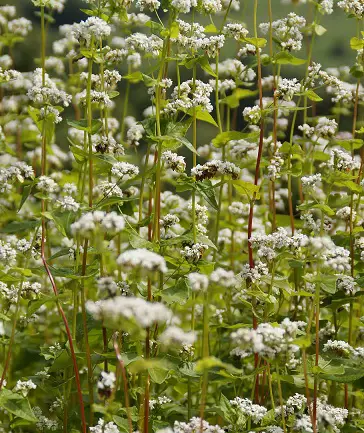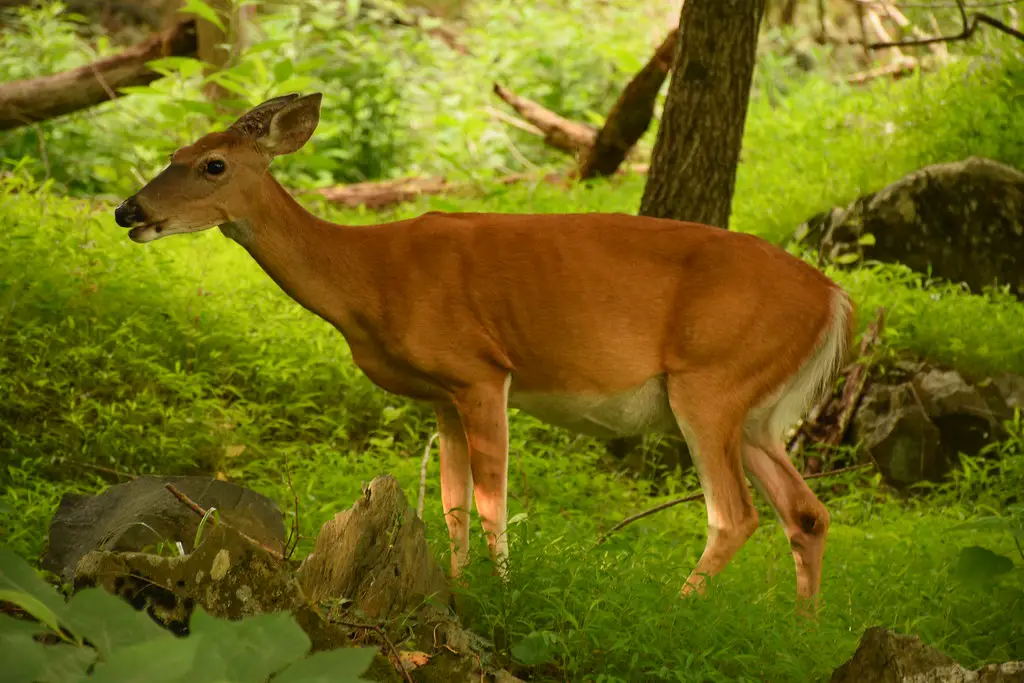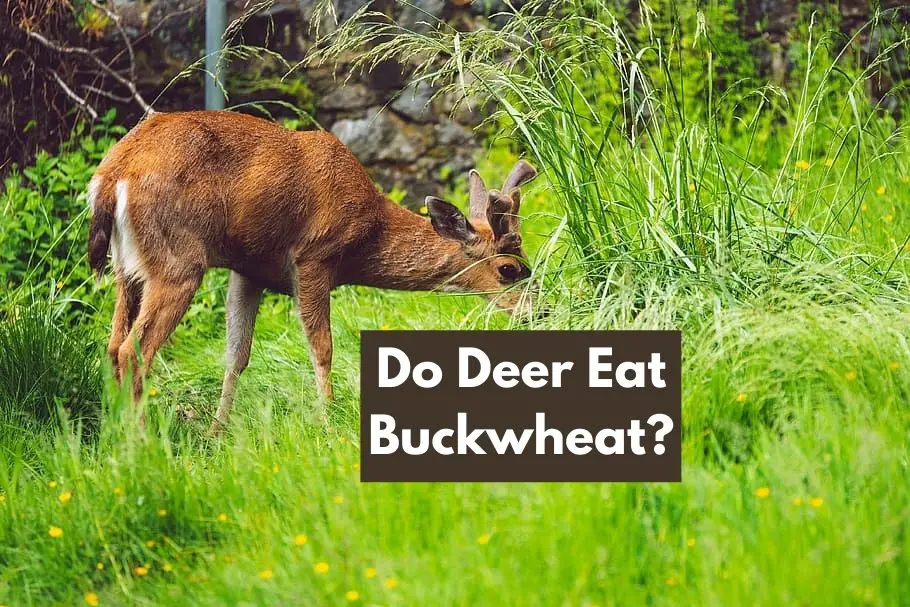There are a lot of myths out there about what deer do and do not eat. One common question is: do deer eat buckwheat?
Yes, deer love to eat buckwheat if it’s available. While buckwheat isn’t a major part of a deer’s diet, it provides vitamins which are critical to deer’s survival.
There’s a bit more to learn about deer eating buckwheat which we’ll cover in today’s guide. Read on for more info.
Why Do Deer Eat Buckwheat?
As we covered, deer will eat buckwheat when they’ve got the chance.
But why do they do this?
Well, for one, deer are herbivores, so they love to eat leafy greens and flowers. Buckwheat has both!
The buckwheat plant has heart-shaped leaves that are 2-4” long and white flowers on the top, which are perfect for deer to eat.
Additionally, deer will consume a wide variety of foods like buckwheat based on opportunity.
Buckwheat grows quickly, can produce a mature plant several times each growing season, and adapts to many different types of soil and climates, making it great for deer to eat.
This is why people specifically choose to grow buckwheat for food plots to attract deer.
If you’re not convinced, scatter some buckwheat seed in your field to grow for deer to eat, and wait to see what happens!
Do Deer Like Buckwheat?
Most folks who plant food plots for deer say that it takes a little time for deer to like buckwheat, but once they do, they’ll usually start eating it consistently.
You shouldn’t worry about whether or not planting buckwheat for deer will be a waste of time.
In fact, you’ll be glad you did. Buckwheat grows easily and quickly in most climates and soil types, making it a great choice for any food plot.
Is Buckwheat Good For Deer?

Feeding deer buckwheat provides them with the following vitamins and minerals:
- Vitamin B6
- Manganese
- Magnesium
- Phosphorus
- Niacin
- Zinc
- Folate
These vitamins and minerals provide deer with many benefits.
For example, vitamin B6 assists in deer immune system function.
Manganese assists deer in growth, respiration, and reproduction.
Magnesium is great for antler growth, increasing body weight, and has immune system benefits for deer.
A 2007 study showed that zinc can assist in growing larger antler sizes in white-tailed deer.
Fat-Soluble Vitamins For Deer
Vitamins A, D, E, K, and calcium are fat-soluble, so they can be stored in the deer’s fat and liver to be used later as needed.
This means that vitamin A content from deer eating buckwheat can be “stored up” for later use, which is highly beneficial.
Water-Soluble Vitamins For Deer
Vitamin C, B Vitamins, niacin, folic acid, manganese, and potassium are all water-soluble, which means they cannot be stored, so they must be replaced continually.
So a deer that eats buckwheat for the manganese or zinc content must continue to consume foods that contain these necessary vitamins to stay healthy.
How To Feed Deer Buckwheat

There are a few things to keep in mind when feeding deer buckwheat: your scent, and how many deer you’re feeding.
Make sure to plant buckwheat on the ground where it’s visible and can be easily reached by deer.
If you’ve got a winter food plot with buckwheat growing in it, the deer will eat the leaves, flowers, and sometimes the seeds right out of the ground.
If deer are not normally around your area in winter, don’t feed them leading up to winter as they will not migrate where and when they should.
This will lead to the deer relying on you as their food source and can result in starvation.
Should I Replant Buckwheat For Deer To Eat?
Buckwheat will naturally reseed itself when mowed, so once the first crop comes in, you shouldn’t need to worry about replanting it each year for deer to eat.
Don’t Leave Your Scent On Deer Food
Deer have a keen sense of smell that allows them to smell human scent farther than bloodhounds can, and can smell up to six different scents at once.
Deer won’t eat food like buckwheat if they have a strong human scent on them, so you should take care to minimize your trace.
You can do this by rinsing the buckwheat and also washing your hands with antimicrobial soap.
Alternatively, you can put a few drops of apple cider vinegar on your hands when handling food you’ll be giving to the deer.
Since you’ll be planting the seeds and the deer will eat buckwheat right out of the field, you don’t really need to worry about covering your scent.
Consider The Amount Of Deer You’re Feeding
If you have lots of deer in your area, think twice about putting out food continuously for them.
If you bring deer together at the same feeding site, it can increase their risk of contracting chronic wasting disease or other communicable diseases from each other.
Can Deer Eat Buckwheat? Wrapping Things Up
So, do deer eat buckwheat?
The answer is yes!
Deer will eat buckwheat when it’s available, and they can actually benefit from the vitamins and minerals found in it.
Just be sure to take care with your scent, the size of the portion, and how many deer you’re feeding when planting buckwheat for them.
Have any observations to add to the discussion? Be sure to let us know in the comments below.
Check our our other helpful wildlife guides while you’re here:

